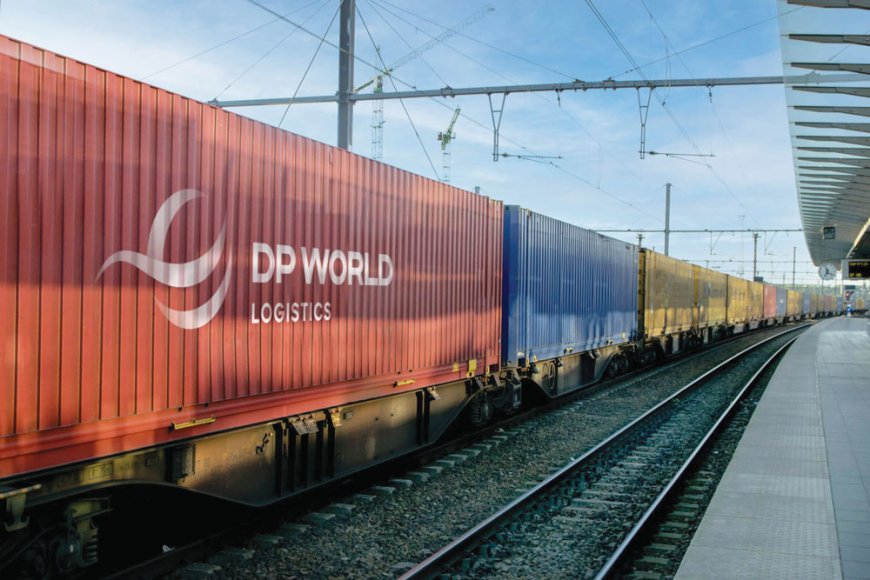We’re focusing heavily on strengthening multimodal integration across our entire ecosystem.
The Indian rail freight market is on a robust growth trajectory, driven by an expanding industrial base, increasing demand for efficient logistics, and government support, with a projected CAGR of above 4% through 2033.

What are the latest market trends in Indian rail freight services?
The Indian rail freight market is on a robust growth trajectory, driven by an expanding industrial base, increasing demand for efficient logistics, and government support, with a projected CAGR of above 4% through 2033. Indian Railways’ decision to procure 90,000 new freight wagons by 2025, backed by a ~Rs 1 trillion investments underscore the scale of ongoing modernization.
Strengthening this ecosystem, Indian Railways launched the Gati Shakti Multi-Modal Cargo Terminal (GCT) policy to boost private sector participation in developing rail-linked logistics hubs that will improve intermodal connectivity and expand capacity. The plan includes setting up 100 GCTs by 2025, with another 100 to follow.
DP World is strategically positioned to leverage this momentum, operating over 100 owned container and SFTO rakes, alongside over 16,000 containers and trailers for last-mile connectivity. Our multimodal infrastructure supports seamless rail, road, and port integration, delivering cost efficiencies and faster transit.
How is the company pushing the growth of rail logistics in India?
As one of India’s largest private rail freight operators, we operate over seven rail-linked Inland Container Depots (ICDs) – located at Pali, Modinagar, Panipat, Hazira, Hindaun, Ahmedabad, and Hyderabad – connecting key manufacturing hubs to major gateway ports. Our Container Train Operator (CTO) license supports containerized cargo movement across both EXIM and domestic circuits, while the Special Freight Train Operator (SFTO) license enhances our capacity to move domestic steel cargo. Under our ‘Sustainable, Assured, Reliable, and Agile Logistics’ (SARAL) initiative, we have launched dedicated multimodal rail services to enable seamless trade. These include:
SARAL-1: Daily service from Hazira (Gujarat) to the National Capital Region (NCR)
SARAL-2: Chennai to NCR, three times monthly via rail and coastal modes
SARAL-3: Gandhidham to NCR, with weekend departures
These services serve sectors like chemicals, ceramics, engineering goods, electronics, and FMCG, cutting transit time and reducing carbon emissions by up to 70%.
 We recently commissioned a new rail handling line at Pali-Rewari terminal, Haryana, strategically located to serve the export needs of the fast-growing North-West Indian industrial belt, to boost monthly handling capacity by 25%.
We recently commissioned a new rail handling line at Pali-Rewari terminal, Haryana, strategically located to serve the export needs of the fast-growing North-West Indian industrial belt, to boost monthly handling capacity by 25%.
DP World operates double-stack train services from ICD Pali and ICD Sachana, both strategically located on the Western Dedicated Freight Corridor (DFC), offering enhanced connectivity to ports like Mundra and Pipavav. Double stacking boosts rake capacity—from 90 to 180 TEUs—enabling more efficient cargo movement and reducing per-unit freight costs. Additionally, the faster turnaround of rakes on the DFC leads to minimal or no port ground rent, further reducing costs.
We have expanded market access with services like the Morbi-Kolkata rail link, connecting ceramic traders in Kolkata with manufacturers in Morbi, Gujarat. To support our customers’ net-zero goals, we provide certificates—powered by our carbon emissions calculator—detailing CO₂ savings from using DP World’s rail services.
What are the challenges faced in rail freight services? What is the way forward to overcome these challenges?
India’s rail freight sector is set for transformational growth, driven by policy support and private investment, with progress hinging on efficiency, infrastructure, and multimodal integration.
A key challenge is infrastructure bottlenecks on busy corridors where freight competes with passenger traffic; Dedicated Freight Corridors (DFC) address this by easing congestion and accelerating cargo movement. DP World is making strategic investments to boost rail infrastructure. A prime example is the commissioning of a third rail line at our Western DFC-connected, Pali-Rewari terminal in Haryana in December 2024, which increased monthly freight handling capacity by 25%, highlighting the impact of infrastructure expansion.
To further bridge gaps in end-to-end connectivity, DP World offers express logistics services that connect businesses to over 15,000 pin codes across India, seamlessly integrating road, rail, air transport, and last-mile distribution. Our strong rail and inland terminal network also play a key role in strengthening this connectivity.
With government-led infrastructure transformation and private sector innovation working hand in hand, India is well on its way to building a rail freight network that is efficient, resilient, and globally competitive.
What are the latest innovations from the company in rail freight services in India?
Innovation drives DP World’s rail services, with advanced Rail and Yard Management Systems enabling lean operations and seamless cargo movement across a future-ready, sustainable network. With 100% online booking capability for both EXIM and domestic cargo, and 24/7 real-time cargo visibility through our track-and-trace facility, customers benefit from a fully digital, transparent experience.
We recently partnered with Reliance Industries to launch a rail logistics solution linking its Jamnagar facility to our ICD in Ahmedabad and onward to Mundra Port. By shifting this 700 km route from road to rail, we have enabled consolidated movement of up to 45 containers or 1,260 tonnes in a single trip—reducing dependency on trailers and drivers while cutting emissions and enhancing efficiency.
Notably, DP World was named ‘Best Rail Freight Service Provider’ at the National Logistics Excellence Awards (LEAPS), a DPIIT initiative recognizing logistics excellence. This recognition reflects DP World’s commitment to innovation and excellence, especially in rail freight solutions that cater to evolving needs and align with the government’s vision for a modern multimodal logistics network.
What are your future plans in rail logistics? How do you view the market outlook in rail freight services?
Rail is vital to resilient, sustainable supply chains, and with rising demand for efficient, low-emission logistics, we are committed to driving its growth. Our well entrenched rail service network of over 90 trains plying on EXIM and domestic routes, 7 rail-linked private freight terminals, and 16,000 plus containers, in the country connects hinterlands to commercial hubs as well as ports like Nhava Sheva, Cochin, Chennai and Mundra, establishing an on-demand multimodal network that enables efficient and reliable cargo movement for our customers
We’re focusing heavily on strengthening multimodal integration across our entire ecosystem—including inland terminals, ports, and logistics parks. This not only improves transit efficiency but also ensures end-to-end visibility and smoother, digitally enabled operations. It’s all about delivering a seamless experience across the supply chain.
Overall, the outlook for rail freight in India is very promising. With the right infrastructure and digital support, sustainability advantage we believe rail will take on an even more central role in cargo movement.







